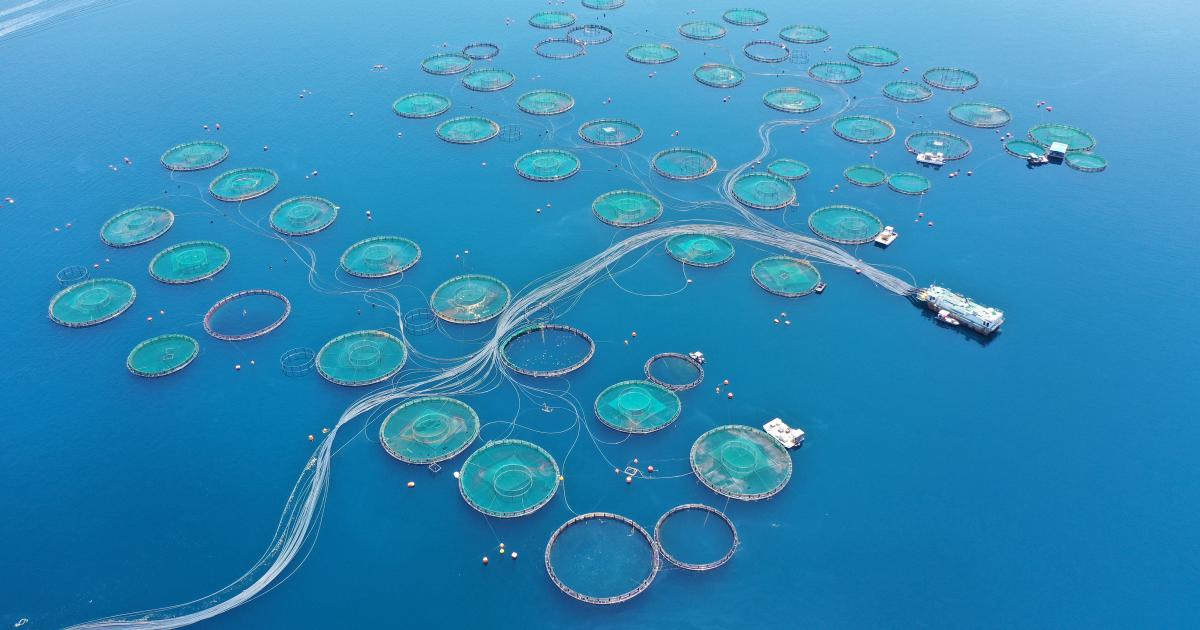Across the EU, highly skilled jobs in the blue economy are paid well above the national average, while lower-skilled jobs, such as those in tourism and fisheries, often pay less than other economic sectors. These are the findings of an analysis conducted by JRC scientists of the EU Blue Economy Observatory. The results are posted on the observatory’s dashboard which displays sector-specific and Member State-specific interactive graphs.
The analysis investigates the attractiveness and remuneration in seven blue economy sectors: Coastal tourism, Marine non-living resources, Marine living resources, Marine renewable energy, Maritime transport, Port activities, and Shipbuilding and repair. These sectors group 42 different economic activities, ranging from two in Marine renewable energy (production and transmission of offshore wind energy) to 12 in Marine living resources (across the following sub-sectors: primary production, processing and distribution of fish products).
The findings, published in the study Remuneration and attractiveness of EU blue economy sectors, reveal key patterns that shape job attractiveness across Member States. The study gives the following insights:
Higher-than-average wages are found in skilled sectors such as marine renewables, shipbuilding, and certain port and maritime transport occupations.Lower-skilled, labour-intensive jobs – such as in coastal tourism, fisheries, and aquaculture – tend to offer lower pay and fewer benefits.Job safety doesn’t lead to higher wages: sectors with high accident rates, such as port activities, often only pay the national average.Seasonal variability is widespread: workers in weather-dependent sectors average just 57–74% of a full-time schedule per year.Wage differences across countries reflect differences in both the national cost of living and internal training, innovation and hiring practices.Skills, safety and salary gaps across sectors
Jobs in marine renewables, advanced shipbuilding and logistics hubs offer competitive wages thanks to technological innovation and skilled labour. For example, in the Netherlands, jobs in the extraction of crude petroleum earn five times more than the national average.
The salary of an individual working in the extraction of natural gas in Poland is also five times higher than the national average. Another example is in Ireland, where jobs in warehousing and storage in ports are paid almost twice the national average.
By contrast, sectors such as coastal tourism and traditional fisheries – which are more reliant on seasonal, low-skilled work – offer limited pay, insecure contracts and fewer training opportunities. A large share of the workforce in the blue economy is employed in these sectors. A share of 53.1% of the blue economy workforce is employed in coastal tourism, while 22.7% of the workforce earns their salaries in marine living resources. Salaries are lower in most of the activities in the marine living resources sector, which includes traditional fisheries, accounting for 2.5 % of the blue economy workforce.
Examples are jobs in accommodation (coastal tourism) in Germany and the Netherlands, which earn around one third of the national average. In Belgium, jobs in shellfish aquaculture earn around one ninth of the national average, while in Cyprus, someone who works in capture fisheries earns around one tenth of the national average.
But salary gaps aren’t just about skill level. Differences between countries also stem from the cost of living, national regulatory frameworks and internal company practices.
These disparities highlight the urgency for coordinated policy efforts to upskill local workforces and invest in more equitable hiring systems.
Job security and safety don’t always align with pay
Job stability varies widely by sector: workers in weather-dependent industries such as offshore wind or tourism frequently operate on short-term or part-time contracts, working far below full capacity in a year. This not only affects income but creates long-term labour-market uncertainty.
Higher safety risks don’t necessarily translate into better wages. Port workers, for example, face one of the highest accident rates in the maritime industry, yet their salaries remain close to the national average.
A call for smarter, fairer blue economy jobs
If Europe wants to fill labour shortages and attract skilled talent to its blue economy, it needs targeted policies that go beyond wages alone. Investing in training, innovation and working conditions – especially in low-pay, high-risk, or seasonal sectors – is essential.
A more resilient, inclusive, and future-ready blue economy employment sector is within reach, but it starts with recognising – and addressing – the structural divides across today’s blue economy jobs.
Related content
Remuneration and attractiveness of EU Blue Economy Sectors
Blue Economy Observatory dashboard (remuneration and attractiveness of blue economy sectors)
